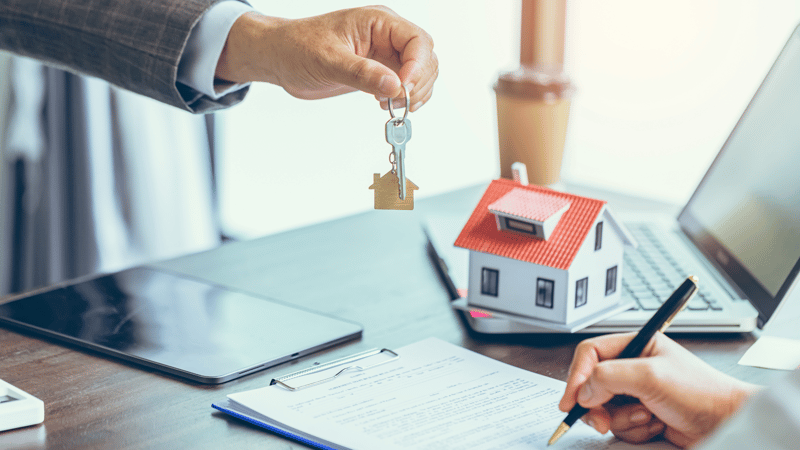Technology is rapidly changing the way people live, and rental properties are no exception. Tenant preferences for smart home technology have shifted from being a luxury to an expectation in many markets. Renters today are looking for convenience, security, and energy efficiency, and smart home features offer exactly that.
However, not all smart home upgrades provide the same value. While some landlords may worry about the cost of implementing smart technology, the right features can lead to higher tenant retention, increased rental value, and reduced maintenance issues.
So, which smart home features actually matter to renters? And how important is smart technology in rental properties? Let’s take a closer look.
Understanding Tenant Preferences for Smart Home Technology
The demand for smart home features has grown significantly in recent years. A survey by Rent.com found that over 82% of renters prefer living in a unit with smart home technology.
Why is this happening? Several factors contribute to the rise in tenant preferences for smart home technology:
-
Convenience: Renters want easy access to their home’s security, lighting, and temperature controls.
-
Security: Smart locks, video doorbells, and surveillance cameras provide peace of mind.
-
Energy Efficiency: Tenants appreciate cost-saving features like smart thermostats and lighting controls.
-
Tech Integration: With more people working remotely, renters value homes that support modern digital living.
For landlords and property managers, investing in smart home technology isn’t just about attracting tenants—it’s also about staying competitive in an evolving rental market.
Smart Home Features Renters Want
Not all smart home technology has the same impact. While high-tech gadgets might sound impressive, tenants are primarily interested in features that improve convenience, security, and cost savings.
Here are the top smart home features renters want:
1. Smart Locks & Keyless Entry
Security is one of the most important considerations for renters, and smart locks with keyless entry have become a highly sought-after feature. Traditional keys are prone to being lost, copied, or stolen, posing security risks and inconvenience. Smart locks eliminate these concerns by allowing tenants to unlock their doors using smartphone apps, PIN codes, or even voice commands. Some models also offer temporary digital access, making it easy for tenants to provide entry to visitors, service providers, or delivery personnel without handing over a physical key.
For landlords, smart locks simplify property management by eliminating the need to replace lost keys, streamlining tenant turnover, and enabling remote access for maintenance teams. These features enhance property security and reduce liability risks. Additionally, smart locks make rental units more attractive to tech-savvy renters who value convenience and security. Investing in keyless entry solutions can increase tenant satisfaction and improve lease retention rates.

2. Smart Thermostats
Smart thermostats have become a must-have feature for renters who want better control over their home’s temperature and energy consumption. Unlike traditional thermostats, smart thermostats learn tenants’ schedules and automatically adjust the temperature to optimize comfort and efficiency. With remote access via smartphone apps, tenants can control heating and cooling even when they’re away. These devices help reduce utility bills, making them especially appealing to cost-conscious renters.
For landlords, smart thermostats can increase property appeal while promoting energy efficiency. They attract eco-conscious tenants looking for ways to reduce their carbon footprint and energy expenses. Additionally, in multi-unit properties where landlords cover heating and cooling costs, these devices help prevent excessive energy use, leading to lower overall expenses. Since they don’t require significant renovations, smart thermostats are an affordable and practical investment that adds long-term value to rental properties and enhances tenant satisfaction.
3. Smart Lighting
Lighting plays a key role in both convenience and security, making smart lighting an attractive feature for renters. These systems allow tenants to control brightness, color, and on/off schedules through smartphone apps, motion sensors, or voice assistants. With the ability to set automated schedules, renters can reduce energy consumption, enhance security, and create a personalized ambiance in their home. For example, they can program lights to turn on gradually in the morning, dim in the evening, or activate while they’re away to give the illusion of occupancy.
For landlords, smart lighting is one of the easiest and most cost-effective upgrades to make a rental unit more desirable. Installing smart bulbs or switches can increase a property’s appeal with minimal investment while reducing the risk of fire hazards caused by lights being left on. Furthermore, integrating smart lighting with other smart home features—such as security cameras or smart locks—creates a more automated and technologically advanced living space, making it attractive to modern renters.
4. Smart Home Security Systems
Security is a top concern for many renters, making smart home security systems an increasingly popular feature in rental properties. These systems typically include video doorbells, security cameras, motion sensors, and alarm systems, all of which provide tenants with real-time monitoring and instant alerts. Video doorbells allow renters to see and communicate with visitors before opening the door, while motion-activated cameras deter potential intruders. These security enhancements offer a greater sense of safety, making tenants more comfortable in their living space.
From a landlord’s perspective, smart security systems protect the property, attract responsible tenants, and can potentially lower insurance costs. Properties with enhanced security measures are less likely to experience break-ins or vandalism, reducing costly repairs and liability concerns. Additionally, renters who feel safe in their homes are more likely to renew their lease, leading to higher tenant retention rates and fewer vacancies. Offering a secure living environment gives rental properties a competitive advantage in the market.
5. Smart Appliances
While smart appliances were once considered luxury items, they are becoming increasingly common in modern rental properties. Smart refrigerators, ovens, washing machines, and dishwashers provide tenants with convenience, energy efficiency, and remote monitoring capabilities. For instance, a smart oven can send alerts if it’s left on, while a smart washing machine can notify users when a cycle is complete. These features not only enhance the tenant’s living experience but also help reduce energy consumption and maintenance issues.
For landlords, incorporating smart appliances can increase the perceived value of a rental unit, attracting tenants who seek modern, tech-equipped living spaces. While they may not be essential in every rental, properties targeting high-end renters can differentiate themselves in the market by offering premium appliances. Smart appliances also contribute to energy efficiency and longevity, helping landlords save money on maintenance and replacements in the long run. Ultimately, they create a more convenient and appealing home environment for tech-savvy renters.
The Importance of Smart Tech in Rental Properties
So, why should landlords and property managers invest in smart technology? The importance of smart tech in rental properties goes beyond just attracting tenants—it directly impacts the financial and operational success of rental businesses.
1. Higher Rental Value - Rental properties with smart home features often justify higher rental rates, as tenants appreciate the added convenience, security, and energy savings. Features like smart locks, thermostats, and lighting make the property more appealing, encouraging tenants to pay a premium for modern living.
2. Faster Leasing Process - Smart-enabled rental units stand out in competitive markets, attracting tech-savvy tenants who prioritize convenience and security. With growing demand for smart home features, properties with such upgrades experience shorter vacancy periods, as tenants are more inclined to apply and lease quickly.
3. Reduced Maintenance Costs - Smart sensors detect issues like water leaks, HVAC inefficiencies, and security breaches before they become major problems. Early detection allows landlords to prevent costly repairs, minimize property damage, and ensure tenant safety by addressing maintenance concerns proactively and efficiently.
4. Better Energy Management - Smart thermostats and lighting systems help optimize energy usage, reducing waste and lowering utility bills. These features not only benefit tenants with cost savings but also assist landlords in promoting eco-friendly living, making the property more attractive to sustainability-conscious renters.
5. Stronger Tenant Retention - A smart home provides tenants with increased safety, comfort, and convenience, encouraging them to renew their lease. When renters feel in control of their living environment, they are more likely to stay longer, reducing turnover costs and ensuring steady rental income.
Tenant Demand for Smart Home Amenities: Is It a Passing Trend?
Some landlords worry that smart home features might be a short-lived trend, but the reality is different. Tenant demand for smart home amenities is increasing, and it’s becoming a standard expectation rather than a luxury.
Why This Trend Is Here to Stay:
- Remote work has increased the need for home automation.
- Tech-savvy millennials and Gen Z tenants expect smart features.
- Smart home devices are becoming more affordable and accessible.
Additionally, as technology continues to evolve, rental properties that lack smart features may become outdated in competitive markets.
Conclusion
So, do tenants really care about smart tech? Absolutely. However, not all smart home features hold the same value in their eyes. Tenant preferences for smart home technology revolve around convenience, security, and efficiency—features that directly impact their daily living experience. For landlords and property managers, investing in smart locks, thermostats, lighting, and security systems can lead to higher rental value, reduced vacancies, improved tenant retention, and lower maintenance costs. These upgrades aren’t just about keeping up with trends—they’re about future-proofing your rental business. As demand for modern, tech-enabled living spaces continues to grow, now is the time for property owners to explore smart home solutions that align with tenant expectations. The right technology can set your property apart in a competitive market, attracting long-term renters who seek convenience, safety, and energy efficiency in their homes.
Don’t miss out, get your RIOO
Subscribe to our newsletter and receive updates on the go













